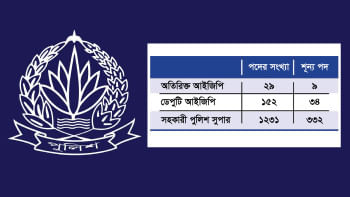Defer LDC graduation by 3 years: BCI

The government should take steps to defer Bangladesh's United Nations status graduation from a least developed country (LDC) to a developing one by at least three years, said the Bangladesh Chamber of Industries (BCI) yesterday.
"We are not ready for LDC graduation right now. Why should we consciously commit suicide?" said BCI President Anwar-ul Alam Chowdhury at a press briefing organised by the BCI in the capital.
He also shared his concerns over the country's economic challenges and business climate.
Chowdhury alleged that the previous Awami League government pursued the LDC graduation based on inflated economic figures in order to portray an achievement.
"If the graduation is not deferred, the economy will face a massive collapse," he said.
The garment and textile sector, which accounts for 40 percent of manufacturing employment and contributes roughly 85 percent of exports, will bear the brunt of the challenges, he added.
Chowdhury said Vietnam would enjoy zero-tariff access to the European Union from 2027, while European importers of Bangladeshi garments would face a 12 percent duty from 2029.
"We strongly believe that the graduation period should be deferred by at least three more years," he said.
Other business platform earlier also recommended the deferment.
But Education and Planning Adviser Wahiduddin Mahmud had pointed out that Bangladesh had no option to adopt the deferment.
Members of a committee which prepared a white paper on the state of Bangladesh's economy also advised the government not to defer the LDC graduation.
About the current economic situation, Chowdhury alleged that the incumbent government was trying to steer the country based on the International Monetary Fund's (IMF) prescriptions.
"It will not suit the nation's existing economic conditions," he said.
Bangladesh Bank has adopted contractionary policies, reduced liquidity, and taken "unfavourable" steps for the economy, industries, and businesses, he said.
"While partial adherence to IMF prescriptions can help meet compliance requirements, full implementation will adversely impact the economy," said Chowdhury.
The BCI president criticised the government for "not prioritising economic reforms".
"High-interest rates, contractionary monetary policies, unresolved energy crises, and potential fuel price hikes clearly show the government's approach is not supportive of industrial growth," Chowdhury said.
He warned that such policies would not only deter new investments but also make survival difficult for existing industries.
On the political front, Chowdhury expressed disappointment over a lack of focus on economic issues.
"The government and political parties have overlooked pressing economic issues and the challenges faced by businesses, diverting their attention to less critical priorities," he claimed.
He also urged the interim government to expedite the electoral process to stabilise the political climate.
Chowdhury pointed to recent statements by Bangladesh Bank Governor Ahsan H Mansur and Finance Adviser Salehuddin Ahmed downplaying the impacts of rising interest rates and VAT hikes, labelling them as "misleading".
He criticised the government's decision to increase reliance on VAT hikes instead of expanding the tax net.
"Such measures are creating confusion among industrial entrepreneurs, who are already grappling with rising costs and operational uncertainties," he said.
Chowdhury also raised concerns about branding entrepreneurs as classified or defaulters without considering the systemic challenges they face.
"The burden of banking irregularities caused by a few individuals or groups is being unfairly placed on the shoulders of all entrepreneurs. Many defaulters are victims of rising operational costs and adverse conditions," he said.
Calling for the introduction of bankruptcy laws, Chowdhury added, "If the government fails to provide protection, entrepreneurs will be forced to shut down their businesses. This gap in legal infrastructure must be urgently addressed."
BCI Senior Vice-President Priti Chakraborty and directors Shahidul Islam, Delowar Hossain, S M Shah Alam, and Zia Hayder were present.

 For all latest news, follow The Daily Star's Google News channel.
For all latest news, follow The Daily Star's Google News channel. 



Comments